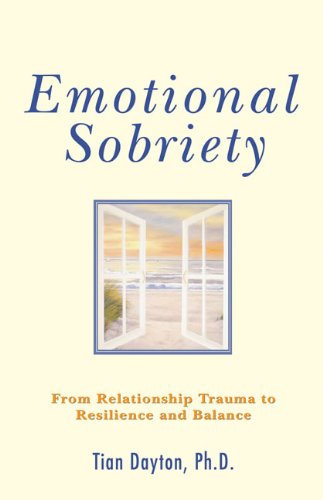- Calls to this hotline are currently being directed to Within Health or Eating Disorder Solutions
- Representatives are standing by 24/7 to help answer your questions
- All calls are confidential and HIPAA compliant
- There is no obligation or cost to call
- Eating Disorder Hope does not receive any commissions or fees dependent upon which provider you select
- Additional treatment providers are located on our directory or samhsa.gov

Emotional Sobriety: From Relationship Trauma to Resilience and Balance
About This Book
When we manage the stresses of the day by turning to outside ‘mood managers’ such as food, sex, work, shopping, gambling, drugs, and alcohol rather than healthier forms of ‘self-soothing,’ it is because we lack emotional sobriety–the state of processing our thoughts efficiently to bring our emotions into balance, says bestselling author and renowned addictions psychologist Tian Dayton, Ph.D. In her latest book, Emotional Sobriety, Dr. Dayton shares compelling, honest tales of her life experiences and case studies of those she has counseled.
Illustrating that emotional sobriety is a mind/body phenomenon, Dr. Dayton includes ideas on how to attain emotional literacy–the skill of translating feelings into words so that we can use our thought processes to understand and bring our emotions into balance–and how to calm the limbic system so that we can actually experience what we’re feeling. The limbic system processes our emotions and governs our mood, appetite, and sleep cycles. Repeated painful experiences, in childhood or adulthood, over which we have no ability or sense of control or escape can oversensitize us to stress andderegulate our limbic system.